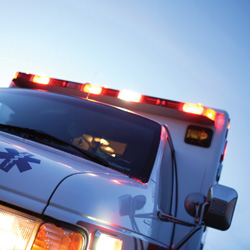
From a business perspective, administrators and owners protect their companies by planning for the unexpected. They anticipate events and manage situations at hand. But few businesses consider all of the possible events that could lead to an interruption of business services, including those in the public health realm. Protecting both the public and their own employees is crucial for business continuity during an infectious disease outbreak from a new pathogen or a bioterrorism event.
Government statistics cite the private sector controlling over 85 percent of the nation’s infrastructure. This infrastructure is critical for first responders and the public sector in protecting employees and the general public during a public health emergency. As a result, it is essential for the private and public sector to develop a communal understanding of the integral roles and responsibilities each play in preparing for and responding to disasters and emergencies. Since the attacks on America on 9/11, the devastation of Hurricane Katrina and the H1N1 influenza pandemic, both government and the private sector have been compelled to re-examine their missions regarding how they protect their communities and employees in an emergency.
During a bioterrorism attack or infectious disease outbreak, it may be necessary to dispense medication rapidly to large numbers of people to prevent widespread illness and death. A point of dispensing (POD) is a physical location where vaccine, antibiotics or other life-saving supplies such as food or water are given to a large group of people.
The local public health agency is responsible for coordinating the dispensing of medication in a public health emergency with the goal of reaching 100 percent of the population within 48 hours. To reach this goal, health departments and governmental agencies will need to work in partnership with businesses and the healthcare community. The private sector can help protect their employees and the public through a network of closed PODs, or points of dispensing, which are restricted to a particular group or segment of the population, such as their own employees and families.
Closed PODs supply medication to a specific population and are not open to the general public. This type of dispensing methodology may be an ideal opportunity for employers to partner with the public sector. This public/private partnership for public health emergencies creates numerous benefits. For the public partner, fewer people would need to be served at an open POD, thus minimizing the surge on the medical community. For the employer, a larger benefit is that their employees feel more secure that they and their families can receive medications and supplies in a familiar and convenient arena. An employee's personal security may foster greater loyalty to the company, reduce turnover and promote a swifter return to "business as usual" after the emergency. Maintaining business functions can restore economic viability within the community and be a benefit to the public as well as the private sector.
To withstand and recover from natural and human-caused disasters, it is essential that the private and public sector work together to anticipate threats, limit their effects and rapidly restore functionality after a crisis. This partnership is beneficial for each independent agency while proving mutually beneficial to the community in building resilience to disaster. iBi
R. Jason Marks is the emergency preparedness coordinator at the Peoria City/County Health Department.

